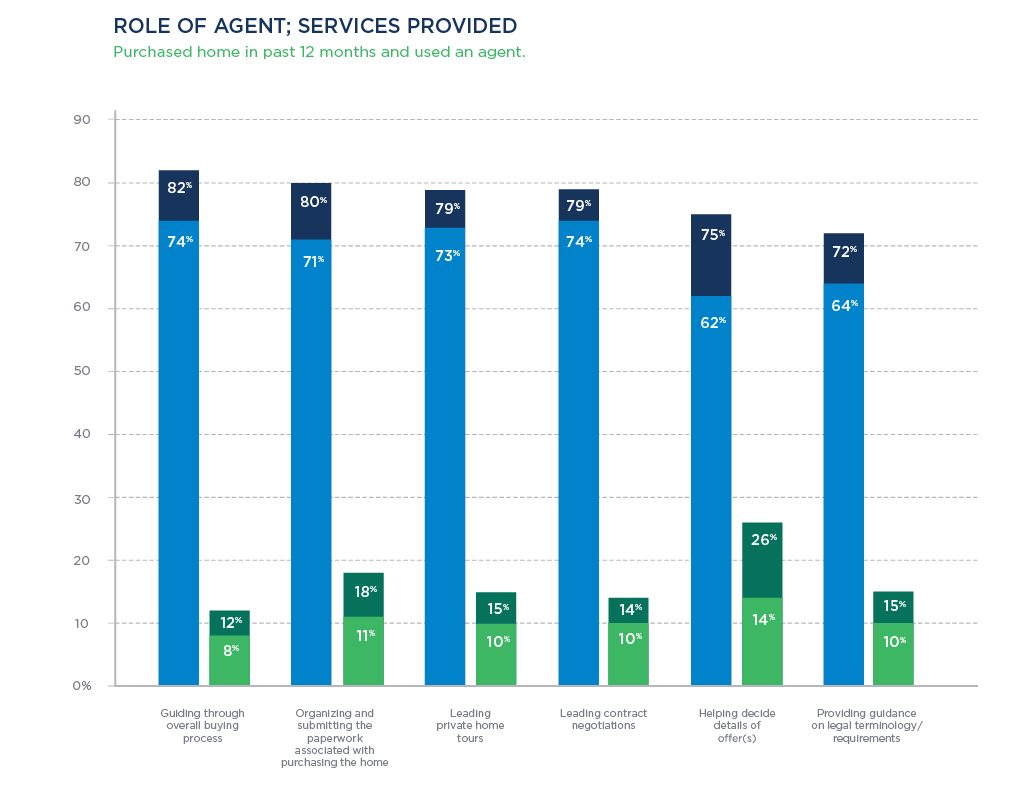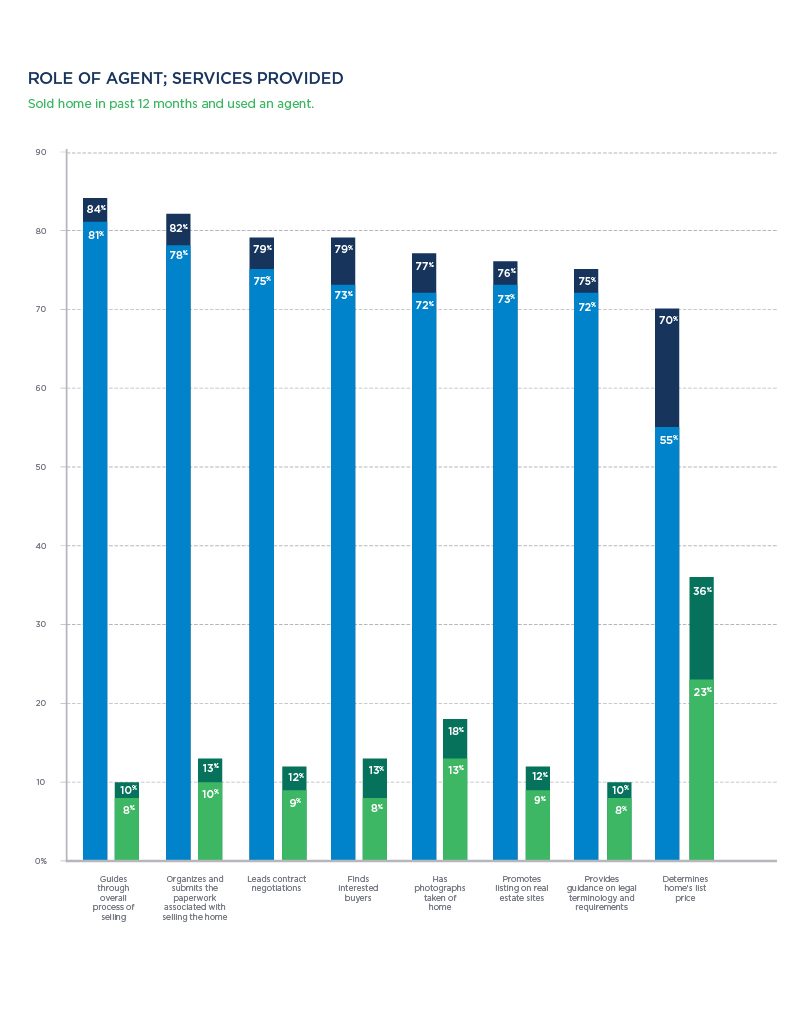6 min read
Is a Career in Real Estate Right for You?
Learn what it takes to be a real estate agent. Is a real estate career right for you? Or are you better suited for another job in the real estate industry?

In this article:
- What does it take to be a real estate agent?
- Is real estate a good career?
- Why become a real estate agent?
- 10 alternative jobs in the real estate industry
While there are quite a few types of jobs in the real estate industry, many people choose a real estate agent career because of its versatility and income potential. Our director of industry outreach, Bret Calltharp, has seen people of all backgrounds become real estate agents. 'It's one of the few industries where a six-figure income is achievable without earning a college degree,' he says.
However, a career in real estate can be daunting if you don't do your research and fully commit to it.
What does it take to be a real estate agent?
Requirements for becoming a real estate agent vary by state. Generally, you must have at least a high school diploma, complete your state's prelicensing coursework and pass your state's licensing exam.
But to achieve success in real estate, you'll need more than the basics. Bret knows from experience: 'Motivation and an entrepreneurial mindset are keys to your success. Provide excellent customer service and your income will follow.'
As a Zillow Premier Agent, you're provided with the tools needed to build a successful real estate agent career, including connections with active home buyers, exclusive branding and insights into the homes your clients view, save and search for on Zillow.
Is real estate a good career?
Working as a real estate agent tends to be rewarding — financially, emotionally and mentally — when an agent excels at the job. You're not just closing a sale but also helping a person or family achieve a life-changing milestone.
It's a big transaction with a lot of moving parts — and you're the one who helps people through it. According to the Zillow Group Consumer Housing Trends Report 2018, 82% of buyers and 84% of sellers expect their real estate agent to guide them through the overall buying and selling process.
In addition to being organized and familiar with the process, you'll act as a counselor, educator, appraiser and negotiator while directing questions requiring special expertise to the right industry professionals.
Role of a real estate agent for buyers
Many buyers ask their agent to refer them to an inspector, mortgage lender and contractor for home improvements. There also are many more services buyers expect from agents, including private tours, organizing and submitting paperwork and more, as seen in the chart below:

Role of a real estate agent for sellers
Sellers often expect their agent to create advertisements, promote their listing on social media and host an open house, along with many other services. Here's how sellers and their agents handled various tasks during their selling process in 2018:

Why become a real estate agent?
If you're on the fence about becoming a real estate agent, then take a look at this list of pros and cons:
1. You'll be your own boss
Many states require a new agent to work under an experienced broker at first — but once that's over, you can branch out on your own.
Pros: You manage your time and priorities, and you can work from home if you choose. And you’ll manage all decisions, with your own best interests in mind.
Cons: You're on your own, and it's up to you to learn the market and build your business. Finding leads, networking and maintaining a referral system are all on you.
2. A flexible schedule
This is one of the top benefits for real estate agents. Since you're the boss, you don't have to be held to a strict 9-5 schedule.
Pros: Need an hour off each afternoon to pick up kids from school? No problem. Want a long weekend? You can make that happen too.
Cons: You no longer have a routine 40-hour work week. Can your client only look at houses from 5-7 p.m. on weekdays? You might miss dinner this week. Need to host an open house? There goes your Sunday afternoon.
3. High income potential
There isn't a cap on how much money you can make as a real estate agent.
Pros: The more houses you close, the more you'll make. The potential to earn is virtually unlimited, as long as people in your area are buying and selling houses.
Cons: If you don't close on any houses, you won't have any income. What happens if you go a month without closing a sale? What about two months?
4. You get to help people
Many people choose a real estate career because they like to help others.
Pros: Buying a home is a major life achievement — and helping someone get there is satisfying.
Cons: Buying or selling a home can be a long, drawn-out process with many roadblocks. Some buyers find out that they can't currently buy a house — and some sellers find out that they may not be able to sell their house without major repairs.
5. Lots of learning opportunities
The market is constantly changing, from the overall housing market all the way down to a neighborhood, and new technology and processes are reshaping the industry.
Pros: You get to wear many hats and learn a wide variety of skills. You'll be creative, think strategically and solve problems.
Cons: It's up to you to stay ahead of the competition — and that requires a huge effort. If you fall behind, you may notice your income falling too.
10 alternative jobs in the real estate industry
While working as a residential agent may be the most common job in the real estate industry, there are many other career paths. If you’re interested in real estate and have a real estate license, you may be able to pursue one of these other real estate careers:
- Real estate managing broker: A great next step in the industry, this job entails managing other agents.
- Commercial real estate agent: These agents help businesses choose and secure office locations. Commercial real estate relies heavily on research and data, and it lacks the emotional factor of residential real estate.
- Real estate investor: Active investors buy and flip properties, and passive investors finance real estate projects.
- Appraiser: Residential and commercial appraisers collect information on a property and come up with an estimate of its worth. Appraisers can work privately or for the government.
- Property manager: These people are responsible for ensuring residential or commercial properties, and their occupants, are taken care of.
- Leasing consultant: This real estate career path involves marketing and negotiating. You'll be responsible for finding (and keeping) tenants for a rental property.
- Commercial leasing manager: Much like a leasing consultant, but for business properties. You'll need to keep a sharp eye on market changes to remain competitive.
- Foreclosure specialist: Banks and private lenders employ foreclosure specialists to review a client's financials and process foreclosure cases so the property can be resold as quickly as possible.
- Real estate attorney: There are many different areas to work in — you could advocate for tenant rights, provide legal counsel before a real estate purchase or perform many other legal tasks.
- Corporate real estate manager: Any company that owns and rents out commercial space will need someone to manage the properties.
Considering becoming a full-time real estate agent? Zillow Premier Agents have access to new leads, powerful technology and exclusive client data to help grow their business faster.
Tips for top-performing listings
Backed by new research, this guide reveals what today’s top listings do differently to capture buyer attention and outperform the rest.
Learn more

